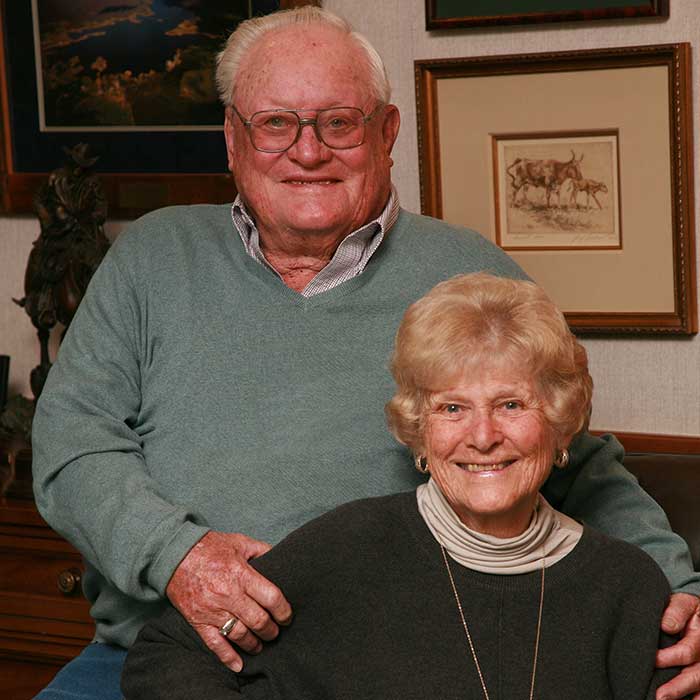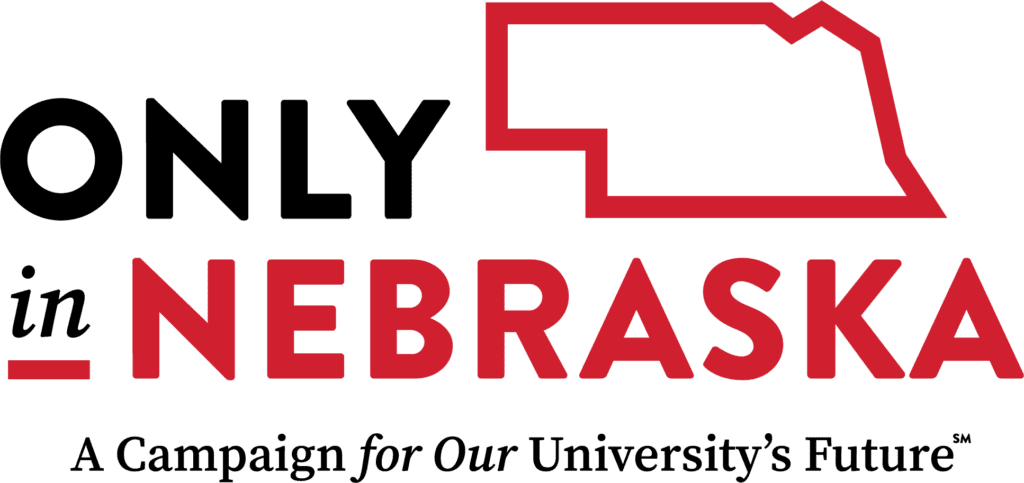Gift from Colorado ranching couple blazing the trail for IANR students


Bill and Sandra Condon create full-ride scholarships for students studying water and cattle.
Bill Condon likes to think about the people who came before him on the land.
He thinks about the pioneers, the folks who drove wagons bound for California on the Overland Trail that carved its path through the land that later became his ranch in Colorado. He thinks of the cooks. The blacksmiths. All of the people who set up shop every few miles along the trail.
They were dreaming of a better future.
No turning back.
Bill, 87, grew up in Omaha. His father bought a ranch in Colorado when Bill was in high school, and Bill would travel out there in those years to work alongside his father on horseback. Bill fell in love with the life.
He attended the University of Nebraska in Lincoln a short time before leaving with no turning back to work on his dad’s ranch in eastern Colorado. (That ranch was farther south from the 20,000 acres Bill and his wife would later own near Sterling, where they raised their children: Bill Jr., Cathy and Linda.)
But Nebraska – and the University of Nebraska – never left his heart.
“I have feelings for both states,” he says.
And even though Bill and his wife, Sandra, didn’t end up graduating from the university, they both still have feelings for the place, and for the importance of education.
And for giving back.
That’s why they recently created endowed full-ride scholarships for students in UNL’s Institute of Agriculture and Natural Resources. The students chosen for the scholarships will be upperclassmen majoring in Water Science or Animal Science. At least one scholarship will go to a student in each of those areas of study, each year.
The Condons wanted to make sure the students know what they want to do with their life and that they’ve already shown a love for a life studying cattle or water.
Bill and Sandra met at the university. She was a city girl who’d grown up in Lincoln. Her dad was in the insurance business. Bill had already left the university by then and had come back for a few days to visit a law school friend when he first saw her.
They married in 1952 and Sandra fell in love with the ranch life, too, though it was a culture shock at first.
“I was not raised with any farm knowledge.”
She chuckles.
“That first summer, I didn’t know how to cook and I had to cook for the hay crew. My grandmother kept sending me cookbooks. I remember she said, ‘Anybody who could read, could cook.’
“And so it happened.”
She also likes to think about the people who came before them on the land. They left a legacy on the Great Plains. Women would conceive and carry babies along the trail, sometimes bury them in a hole in the land before moving on. No turning back.
Over a decade ago, the Condons, who are art lovers, commissioned a sculpture from an artist friend and donated it to the university. The sculpture depicts a young pioneer woman, almost life-size, standing next to a wagon wheel. She’s gazing back, but still going forward.
“No Turning Back.”
That’s its name.
The woman stands in a brave pose, in bronze, on the corner of 12th and Q streets just outside UNL’s Great Plains Art Museum.
The Condons gave the piece to the university back in 2000 to honor Bill’s parents, who worked hard to make life better for their children. His dad, who had started working alongside his own dad at age 14, grading dirt, started his own grading company in 1901 at the age of 19. He later built bridges and dams. It wasn’t an easy life. Bill’s parents lived in tents in the early years and even spent one Montana winter that way.
They had challenges, heartaches. They withstood the deaths of some of their own small children. But they didn’t turn back.
Over the decades, as Bill rode his ranchland on horseback, he’s thought about how lucky he’s been to have hard-working people like his parents blaze the trail for him.
He’s thought about how hard it must have been for those folks on the Overland Trail.
“I think about them a lot, how tough it was for them,” Bill says. “Like my dad used to say, ‘What’s tough depends on where you came from.’ And these people were tough.”
Bill discovered depressions in the landscape of his land, which lies along the South Platte River. Those depressions looked manmade to him. He figured they might be stagecoach stops, so he let a historian from a nearby college and some students examined the grassland. They discovered four old stagecoach stops. Using metal detectors, they found knives, forks, shell casings, an amulet from a soldier’s uniform …
Bill and Sandra had monuments built on those four spots.
Water was so important to those folks, Bill says. Every four to seven miles along the trail, you’d have to have a stop like those because of the need for water.
Bill thinks about water a lot.
As a landowner, he was ahead of his time in water conservation. He built a recharge pond on his land that enhanced the habitat for the wildlife. (The pond allows water to divert into the underlying aquifer, and it slowly makes its way back to the South Platte.) He served on the board of the Northern Colorado Water Conservatory District for almost three decades. In 2001, the Colorado Wildlife Federation named him runner-up as “Landowner of the Year.”
He became known as “Mr. Water.”
“My legacy?” Bill says, when asked. “Oh, I guess it’s just to be associated with water, and with running the ranch. Passing on your knowledge to younger people – that’s my philosophy.”
Many young people, he says, just don’t have the opportunities he had.
“It makes you feel like you’ve accomplished something,” he says, “when you can help them.”
THE END
If you, like the Condons, would also like to help blaze a trail for IANR students, please considering giving to the institute by contacting the University of Nebraska Foundation at 800-432-3216 or by going to nufoundation.org/ianr.





